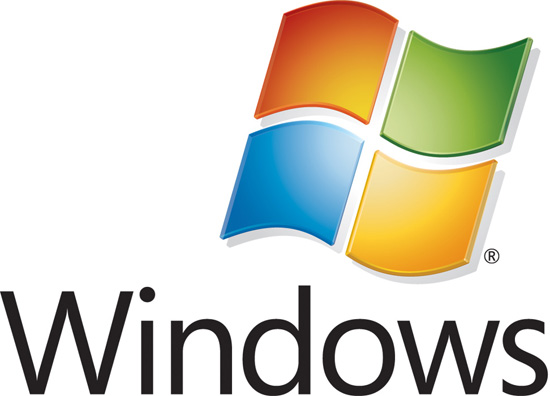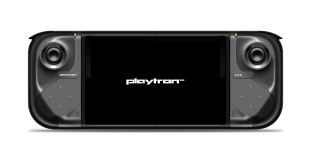Although Microsoft Corp.’s Windows 7 operating system is nearly five years old and it has been almost two years since the release of the Windows 8 OS, the Win7 is still the world’s most popular operating system, according to Netmarketshare. Moreover, some PC makers continue to install it on new PCs. Still, if you use Windows 7, then you should know that Microsoft ends mainstream support of the operating system in early 2015.
Microsoft typically supports its operating systems for a minimum of 10 years. For a minimum of five years it provides the so-called mainstream support (or for two years after the successor product is released) and for another minimum of five years (or for two years after the second successor product is released) it provides the so-called extended support.
During the mainstream support period Microsoft provides security updates, non-security hot-fixes, performance enhancements, feature improvements, design changes for free and accepts warranty claims. During the extended support phase it only issues security updates at no cost as well as provides paid hotfix support.
On the 13th of January, 2015, Microsoft will move all versions of Windows 7 and Windows Server 2008 into extended support, which means no new features, no performance enhancements and no design changes will be coming to these operating systems. The company will provide extended support for the Windows 7 and the Windows Server 2008 operating systems till early 2020.
It is interesting to note that Microsoft’s partners will continue to sell PCs featuring Windows 7 Home Basic, Home Premium and Ultimate operating systems till the 31st of October, 2014. Meanwhile, there is no date when PC makers stop selling systems with Windows 7 Professional pre-installed.
Since Microsoft ended extended support of the Windows XP OS back in April, many businesses and enterprises now upgrade their PCs to systems running Windows 7 Professional. It remains to be seen whether the announcement concerning the movement of the Windows 7 OS into the extended support will make any customers change their current plans to adopt older Windows 7 instead of newer Windows 8.
Discuss on our Facebook page, HERE.
KitGuru Says: Keeping in mind that Microsoft prolonged support for Windows XP several times, it is likely that it will do the same with the Windows 7 Professional simply because many businesses and enterprises will unlikely use the Windows 8 because of unfamiliar user interface and other factors.
 KitGuru KitGuru.net – Tech News | Hardware News | Hardware Reviews | IOS | Mobile | Gaming | Graphics Cards
KitGuru KitGuru.net – Tech News | Hardware News | Hardware Reviews | IOS | Mobile | Gaming | Graphics Cards




the want to end it because the sales of windows 8 is low the microsoft is not thinking well
test
test
test
Well Windows 8.1 with updates is way better for Gaming
How, exactly?
my guess is newer directX
Well….
I use Win 7 and as far as I can tell there’s no reason for me to move to 8.
For me there’s nothing that 8 delivers that would be useful to me and worth the money.
The only problem I have is when they launch DX12 and probably wil lrestric it to Win8 because they’re.. *unts…
Elaborate please. Outside of the upcoming dx12 that I’m sure could run on Win7 just fine, although they’ll probably not allow it
Windows 8 is more lightweight, allowing games to run better.
That did not help me. I’d like you to elaborate… lightweight means?
And what does run better mean?
Also, for what ever explanation you ahve, can you link me to some sources, perhaps 🙂 ?
Windows 8 lacks Aeroglass which was a large resource hog on slower machines. As a result, it has a smaller memory footprint. There are also numerous other changes which can affect performance, including WDDM 1.2 which further offloads processing to the GPU, and the inclusion of Windows Defender.
Source with tests: http://blogs.msdn.com/b/brunoterkaly/archive/2013/01/14/windows-8-is-definitely-faster-than-windows-7.aspx
Translation= We at microsoft want you to buy W8, giving us your money and the ability to spy easier on you. We don’t care what you do on W7, but since we don’t get anymore money from you we don’t care. If the programs you don’t use don’t have support on W8 (for apparent reasons), then f*beep*ck you! we want all of your money and nothing in return! Oh and here, we got Dx12 cookies for you. So join the dark side!
Microsoft suffers from HUTHA syndrome. Do they ever ask the customers what they want? Their like the tech manuals that are written by a coder so that nobody but has the faintest idea of what, where, when.
Do they realize that there is a need of stable OPS for the people who have been using PC’s for all these years! We don’t want phone apps on our PC’s. We don’t want our PC to work or look like a phone! We want to be able to navigate our PC just like a PC and not a phone. I for one do not want to have to reach up and touch a screen to use my PC.
Im glad. Im always confused by the icons on my win 7 dekstop. Start menu is easily one of my least used features in Win 7 except for search and they already found a much better way of accessing that with 8.1. Also glad that 8.1 kept the desktop features. Overall MS is on a slow and steady transition that most ppl wont understand right away but will pick up eventually.
Win 8 may go free eventually
Win 8 performs significantly faster than 7. Also needs only 1 gb ram for OS. Overall it is a very very light OS. I have noticed less issues, freezes , lags etc
Also devs are now fully supporting Win 8.1.
The interface is fantastic if you have a touchscreen, if not you can customize it your way. Just make a few large app logos on front which you mostly use and then bang into desktop whenever required. Its preety dam sweet to be honest.
I am an avid gamer and also work in the post production field in film and can tell you that everytime I come back from using my windows 8.1 tablet, win 7 feels a bit outdated. I just find the start menu which has anyways been faulty since like forever with many uninstalled softwares not getting removed, registry issues etc. But none of these problems exist on win 8.1. They have really made it accessible.